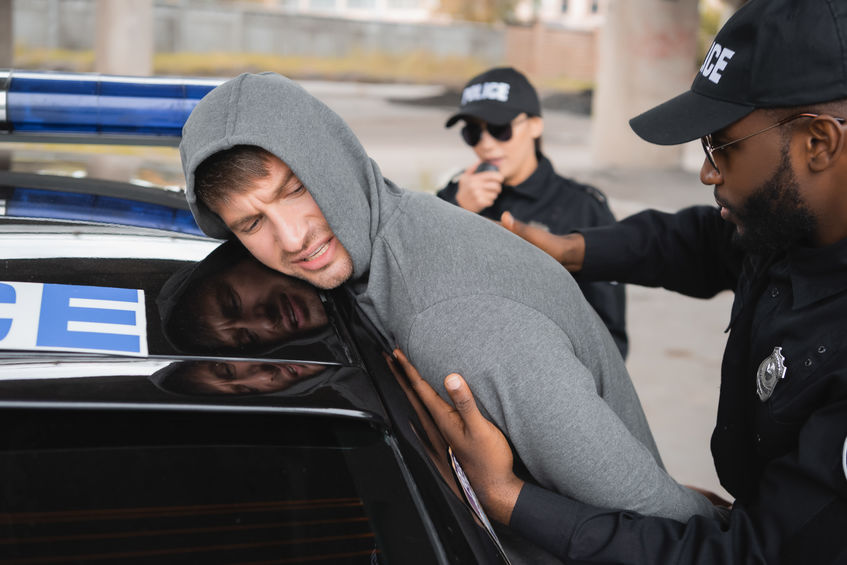Consult an Attorney When Assistance Needed
Video Transcribed: I’d like to talk to you today about stop and frisk. What are a stop and frisk? Well, if you’re walking down the street and you get stopped by the police and they pat you down, that’s a stop and frisk. Is that legal? Well, the answer is, it could be legal.
If the police have reasonable suspicion to believe either that you’re engaged in criminal conduct, they can stop you to question you about that, and if they have reason to believe that you might be armed, that you’re carrying a weapon and it could be a threat to their safety, they can pat down the outside of your clothing to look for weapons.
Now, in both of these instances, it’s a standard that’s lower than probable cause. It’s basically saying, if they can articulate reasonable grounds for why they stopped you to question you or why they frisked you, then it’s probably okay.
However, it’s a very, very limited circumstance. With a stop, they can only detain you long enough to ask you a few questions and ascertain what you’re up to. With the frisk, they can pat down the outside of your clothing. They don’t get to go through your pockets. They don’t get to dig everything out. And the only reason they do that is to look for weapons.
If you do find yourself subject to a pat-down stop and frisk, a couple of things. If they ask for us to search you, you should memorize this phrase. “Officer, I do not consent to any searches.” You want to be very careful about your tone of voice in this situation, because if you act aggressively, you can be treated aggressively, and that could get you arrested, it could also get you injured because the police perceive a threat. And if they’re already frisking you, it’s because they think you might have a weapon on you. So, if you behave aggressively, you put your safety in danger and you jeopardize yourself legally.
The best thing you can do with that situation is let them frisk you. If you believe they violated your rights, you should talk to a lawyer later about what your remedies might be. But at that moment, you don’t want to try to resist. It’s not safe, and it can and will get you arrested.
As far as questioning goes, you have an absolute right against self-incrimination. If the police want to ask you questions, you’re within your rights, and this is what you should say. “Officer, with all due respect, I understand you have a job to do. I have nothing to say without a lawyer present.” And then you shut your mouth. That’s how you can handle a stop-and-frisk situation out on the street.
Now, if you’re stopped where you’re in your car, the police do have the right to ask to see your driver’s license. In Oklahoma, they can ask to see your driver’s license and proof of insurance, and they can ask you if you’re carrying a weapon.

Now, if you are carrying a weapon, particularly if you’re carrying a firearm, Oklahoma is a duty to disclose state. So if you are carrying a firearm, legally, you should tell the cop as soon as you get the opportunity that you are armed. Oklahoma law changed a short time ago where you no longer have to have a permit as an Oklahoma resident to carry a firearm in your car. You can carry a loaded firearm without the permit, but you still do have to disclose to the police if you have one.
But any other questions outside of that scope, again, the smartest way to handle it is that you immediately lawyer up. And obviously, if you get a question like, “Do you know why I stopped you?” That’s a trap. Don’t answer that.
If you say anything at all to “do you know why I stopped you?” the correct answer is, “No officer. I have no idea.” Truthfully, that is never a dishonest answer even if you know you were breaking the law because consider this for a second.
You don’t know what that cop did or didn’t see. So by saying, “I have no idea,” you are being truthful because you can’t read his mind. You have no idea what he saw that made him stop you. And the question is asked to get you to admit to breaking some kind of traffic law. So don’t answer that with anything other than, “No officer, I have no idea.”
The cop asks to search your car, it’s the same as if they want to search your person. “With all due respect officer, I don’t consent to any searches.” If they want to get a sniffer dog, you should understand, they can briefly detain you to bring a sniffer dog to sniff around the car, and sniffer dog on the outside of your car is not considered a search.
However, if they’ve already terminated the encounter, in other words, let’s say they stop you at a traffic stop, they’ve already written you your ticket and handed it to you, here’s how you can avoid the sniffer dog, or potentially avoid the sniffer dog. “Officer, am I free to go now?”
That’s going to set up one or two situations. Either they’re going to tell you yes, at which point in time you can leave, once they give you back your license and proof of insurance, you can leave. If they say you’re not, well, now you’re detained and they have to have reasonable grounds to detain you.
And the reason you want to know about all these things is that if you get into a situation where that encounter leads to a criminal situation, either you get a ticket or you get arrested or something else happens, the more you know about your rights, the easier it is for us as attorneys to do our job and fight for you.
Because if the cops detained you unreasonably and they kept you by the side of the road on the traffic stop for 45 minutes while they get a dog after they’ve already written the ticket, we can object to that.
But if you make small talk with the cop, the cop is going to tell a court, “Well, they were here voluntarily. They were making small talk. I just happened to have a dog come by.”
So, it’s important to know your rights and that you don’t inadvertently waive your rights because it makes our job much easier in trying to represent your interests later in court.
And if you do find yourself in one of those situations where there are criminal consequences for one of those encounters, definitely get a good lawyer involved right away. Give us a call. If you feel like your rights have been violated by the police, even if you weren’t arrested, give us a call. We can definitely help you out with that. If you need to speak with one of our criminal lawyers Tulsa, ok at our office, visit makelaweasy.com



